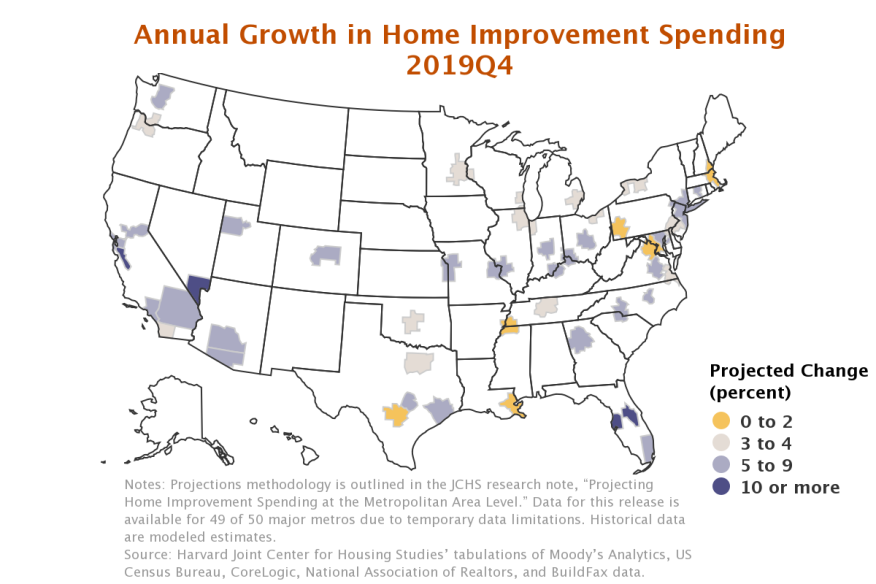
Annual gains in homeowner spending on home improvement projects are expected to temper in 29 of the nation's largest metropolitan areas in 2019, according to projections released by the Remodeling Futures Program at Harvard University's Joint Center for Housing Studies.
While no major metros are projected to see spending levels decline in 2019, the Remodeling Futures Program model projects the pace of spending by homeowners will slow in 59% of the 49 major metro areas tracked relative to their estimated 2018 gains. The model projects annual growth in improvement expenditures will fall to the lowest rate in three years in 22 of the metro areas tracked.
“Metros with cooling home prices and sales activity are not able to sustain the same pace of investment in home improvements as in recent years,” managing director of the Joint Center for Housing Studies Chris Herbert said. “Our projections show especially pronounced slowing in markets such as San Antonio, Texas, Kansas City, Kan., Pittsburgh, Pa., Buffalo, N.Y., and Dallas, Texas.”
The model projects the strongest growth in 2019 to be among metros in the west, with 8% growth or greater in Sacramento, Calif., Denver, Co., Seattle, Wash., Tucson, Ariz., San Jose, Calif., and Las Vegas, Nev.
“Despite the broader deceleration, remodeling gains should remain strong and even accelerate through year-end in some areas of the country including Orlando, Fla., and Las Vegas, Nev., where remodeling permitting, house prices, and home building have picked up,” Elizabeth La Jeunesse, senior research analyst in the Remodeling Futures Program, said.
The Remodeling Futures Program, initiated by the Joint Center for Housing studies in 1995, is a study of the factors influencing the growth and changing characteristics of housing renovation and repair activity in the U.S.





